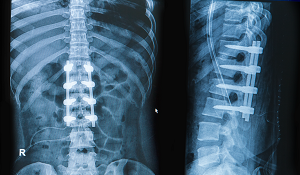
Medical Device ERP Software: Choosing The Right ERP For Medical Device Manufacturers
If you operate in the medical device industry, you know that things are always changing. Regulations, product lines, and customer demands are constantly shifting, which can make it difficult to keep up. This is where an enterprise resource planning (ERP) system can help.
In this article, we'll discuss what an ERP system, such as SAP ERP for life sciences, is and how it can benefit your company.
What Is an ERP System?
An ERP system for medical device manufacturers is a software solution that helps manage all aspects of the business, from product development and manufacturing to sales, marketing, and customer service. It gives you a complete view of your business operations, so you can see where things are running smoothly and where there are bottlenecks or potential problems.
An ERP system can also help you automate many of your business processes, which can save you time and money.
Key Considerations For Choosing ERP For Medical Device Manufacturers
In the highly regulated industry of medical device manufacturing, choosing the right enterprise resource planning (ERP) solution is critical. Key considerations include FDA validation requirements, regulatory compliance, product traceability, and complete visibility of the manufacturing process.
FDA Validation Requirements for ERP
As a medical device manufacturer, it's critical to ensure that any software you use, including your enterprise resource planning (ERP) software, meets the FDA's software validation requirements.
The FDA publishes guidance for industry and staff on the general principles of software validation. When choosing ERP software, it’s essential to find a provider that has developed an approach to validating and maintaining the software in the context of medical device manufacture.
ERP Regulatory Compliance
As a life science manufacturer, it's important to consider regulatory compliance when choosing ERP software.
The FDA requires organizations to follow 21 CFR Part 11, which allows for the use of electronic signatures in place of pen and ink signatures on paper documents.
However, in order to be compliant, electronic signatures must include the signer's printed name, the date and time of the signature, a unique user ID, a digitally adopted signature, and the meaning of the signature (labeled "signing reason").
So, when selecting ERP software, it's crucial to ensure that it meets these requirements to avoid potential compliance issues.
ERP Product Traceability With The Understanding Of Lot And Serial Number
Lot and serial number tracing are crucial in medical device manufacturing for a variety of reasons.
First and foremost, it allows manufacturers to quickly and accurately identify and isolate products that may be defective or non-compliant, minimizing the risk of harm to patients and reducing the likelihood of costly recalls.
Additionally, lot and serial number tracing provides manufacturers with detailed information about the components and materials used in the production of each device, making it easier to identify potential issues and improve quality control measures.
Furthermore, lot and serial number tracing are often required by regulatory agencies, making it an essential part of maintaining compliance and avoiding penalties.
Ultimately, implementing effective lot and serial number tracing systems can help medical device manufacturers ensure the safety and efficacy of their products, as well as protect their reputation and bottom line and should be top-of-mind when selecting an ERP.
Complete Visibility Of The Device Manufacturing Process
Complete visibility, control, and audit trail of manufacturing processes are essential in medical device manufacturing to ensure compliance with regulations and quality standards.
It enables identifying potential issues, tracking resources, and steps in the manufacturing process.
An audit trail helps trace each product to its source and identify issues, critical during product recalls.
Choosing an enterprise resource planning solution that provides real-time visibility, tracks every aspect of production, and offers an audit trail should be a top priority for medical device manufacturers.
What Are the Benefits of a Medical Device ERP System?
There are many benefits of using an ERP in medical device manufacturing, including:
1. Quality Control Compliance
Quality control in the pharma industry is stringent. An ERP system can help you meet these regulations by tracking every aspect of your product development and manufacturing process—from raw materials to finished goods.
2. Improved Customer Service
An ERP system gives you a complete view of your customers, so you can see their purchase history, service issues, and contact information in one place. This can help you provide better customer service and build stronger relationships with your customers.
3. Increased Sales and Profitability
An ERP system can help you optimize your business processes and increase efficiency, which can lead to increased sales and profitability. For example, you can use an ERP system to automate your marketing campaigns and track their performance, so you can see which ones are most effective.
4. Optimized Research and Development
Research and development (R&D) is a major part of medical device companies—it's where new devices are born. This makes it extremely important for companies to be able to optimize R&D processes. An ERP system can help you do this by automating tasks like project management, documentation, and data analysis.
5. Better Financial Management
An ERP system can help you manage your finances more effectively by providing real-time visibility into your financial data. This can help you make better decisions about where to allocate your resources and how to grow your business.
Why ERP?
An ERP system can be a valuable tool for medical device companies. It can help you meet quality control and compliance regulations, optimize your business processes, and increase sales and profitability. If you're looking for a way to improve your medical device business, an ERP system is worth considering.

